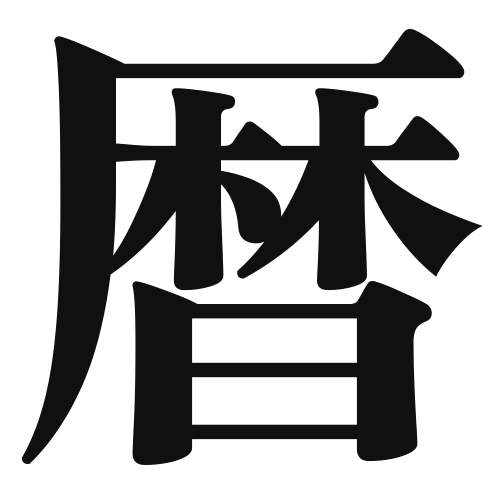1. Overview of Meaning
The kanji “暦” (reki) means “calendar.” It represents a system for organizing days, months, and years, helping people keep track of time and important events.
2. Formation and Radicals
Formation of the Kanji: The kanji “暦” is a compound character (会意文字) that combines elements representing “sun” (日) and “moon” (月), symbolizing the passage of time through both day and night.
Radical: The radical for “暦” is “日” (sun), which is often associated with time and light.
3. Examples of Usage
Common Words and Phrases:
- 暦年 (reki-nen) – calendar year
- 旧暦 (kyū-reki) – old calendar (lunar calendar)
Example Sentences in Daily Conversation:
- 「今年の暦はとても忙しいです。」(Kotoshi no reki wa totemo isogashii desu.) – “This year’s calendar is very busy.”
- 「旧暦の祭りを楽しみにしています。」(Kyū-reki no matsuri o tanoshimi ni shiteimasu.) – “I am looking forward to the festival based on the old calendar.”
4. Synonyms and Antonyms
Similar Kanji:
- カレンダー (karendā) – This is a loanword from English, referring to a calendar but is used more casually.
Antonyms:
- 無 (mu) – meaning “nothing” or “absence,” which contrasts with the concept of a calendar that organizes time.
5. Cultural and Historical Background
Relation to Japanese Culture: The concept of a calendar is deeply rooted in Japanese culture, influencing festivals, agricultural practices, and daily life.
Proverbs and Idioms:
- 「時は金なり」(Toki wa kane nari) – “Time is money,” emphasizing the value of time, which is organized by calendars.
